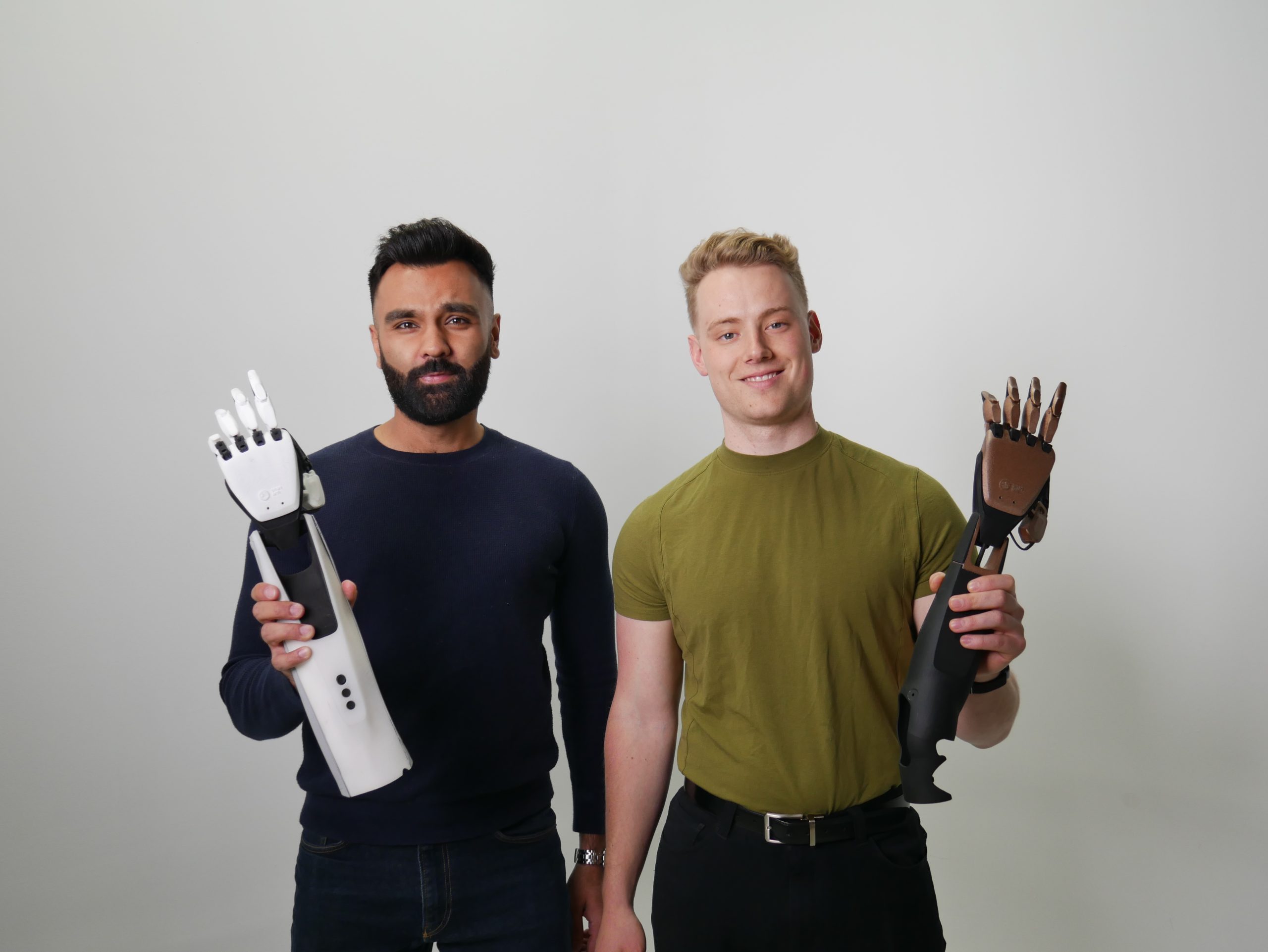In conversation with Praxis SCI Incubate Cohort Member, smartARM

📖 2 min read | #prosthesis #upperarmextremity
In conversation with Praxis SCI Incubate Cohort Member, smartARM
About smartARM Robotics, one of the start-ups in the SCI Incubate Program 2024 cohort: smartARM, a Toronto-based start-up co-founded by Evan Neff and Hamayal Choudhary, is an innovative start-up developing an AI-powered prosthetic arm. Their flagship device features a camera embedded in the palm to allow the arm to interpret visual cues and adapt grip functionality – enhancing the user’s ability to interact with the physical world. Evan Neff from smartARM participated in a post-program interview by the Praxis team, reflecting on the start-up’s journey, learning experiences and key takeaways from the Praxis SCI Incubate Program.
A vision for smarter prosthetics:
Evan’s interest in the human body sparked as he grew up playing sports and experiencing injuries. His interest deepened further when he saw a family member getting diagnosed with a rare form of degenerative arthritis. This led Evan to pursue MedTech engineering to help individuals recover their bodily functions.
In 2020, he met his co-founder, Hamayal Choudhary, who had been developing the concept for smartARM for a couple of years before meeting him. Their start-up, smartARM, was born out of a simple yet bold question: What if prosthetics could learn, adapt and give people true independence seamlessly?
Why smartARM joined the Praxis Incubate Program:
In April 2024, smartARM joined the Praxis Incubate Program. From the program onset, the team was clear on their goals:
- Market validation: Market exploration and end-user feedback for feasibility and alignment of their device with the needs of the SCI community.
- Clinical expertise: Ensure clinical standards and functional relevance.
- Networking and resources: Access to industry experts, mentors and commercialization experts to scale their solution.
Through the Praxis SCI Incubate Program, smartARM benefitted from the tailored support:
- User-centric design guidance from clinicians and researchers.
- End-user feedback from the SCI community through weekly mentorship sessions and focus groups.
- Connections with healthcare and commercialization experts.
With this guidance, smartARM began designing for wearability (easy to don and doff), daily usability, and therapeutic benefits (aid in rehabilitation).
Building for the future:
Initially focused on upper-arm prosthetic devices, smartARM’s mission has expanded to include exoskeletal devices and rehabilitation tools, offering hope to people with spinal cord injuries and beyond. With their vision to make assistive devices functional, accessible and user-friendly, the team aims to improve both the quality of life and the therapeutic outcomes for their users. Their journey reflects a commitment to innovation and the inclusion of the end-user perspectives in every stage of their product development and reach the markets faster.ly on. One that helps build a truly robust roadmap.”
About the Praxis SCI Incubate Program:
The Praxis Spinal Cord Institute’s Incubate Program is a four-month Program geared towards prototype stage projects with innovation to transform the lives of people with spinal cord injury (SCI). The Program provides targeted end-user product validation, research, mentorship support, tailored mentorship, expert guidance, and access to their commercialization network.
